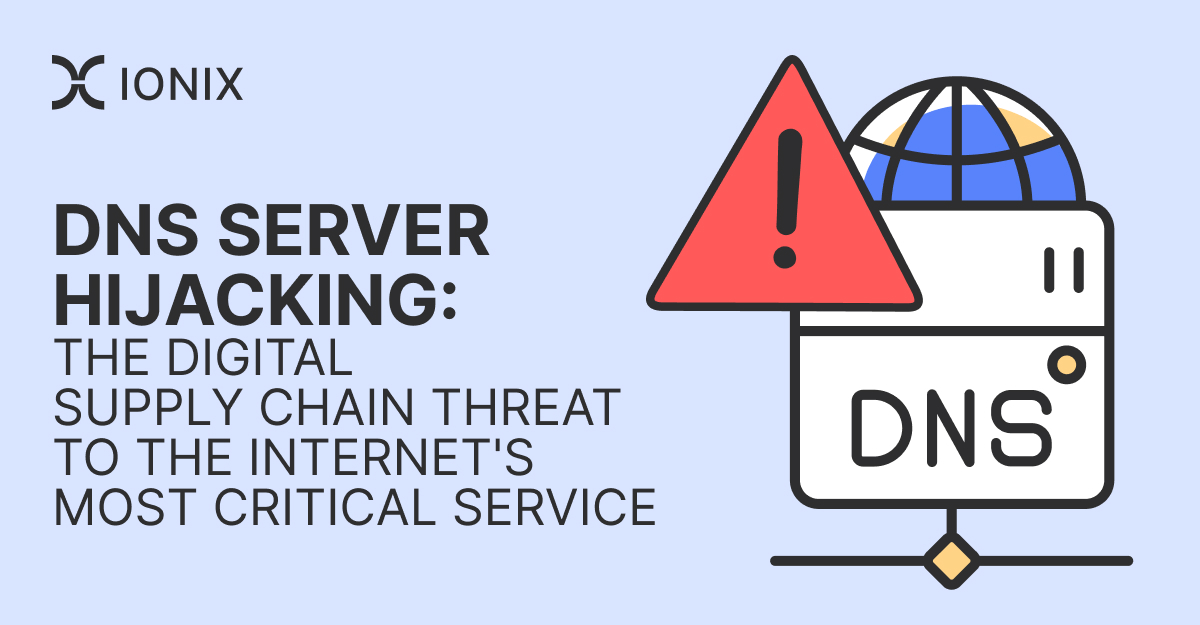
Attackers vs Defenders: Mind the perspective gap - Blog Detectify
Why security defenders need an EASM solution that combines policy control, vulnerability detection, and a crowdsource element going forward
New offering!We now offer cybersecurity-specific SEO analysis to help guide your content strategy.
EnquireHere are some samples of blogs that we've written for our customers.

Why security defenders need an EASM solution that combines policy control, vulnerability detection, and a crowdsource element going forward

My name is Jude, I’m a Security Analyst working with a Security Operations Center (SOC) team based in Australia. Outside of the usual SOC tasks (alert…

If you’ve been following these blogs, you’ll see that in the last article, we hacked together a basic attack surface monitoring platform using projectdiscovery tools. Using some of those basic building blocks, we’re going to build a basic historical DNS bot that will continuously enumerate domains and then alert us for the existence of new domains. We will also be able to request the results from a flask API. I will be forking the old project as a starting point, so if you haven’t already read

Some of the advantages that coding knowledge can give you when you start ethical hacking. Aimed at developers who want to learn hacking.

In a lot of major cities in the world, pickpocketing and phone-snatch robberies are very common. Modern smartphones are expensive and easy to sell, and it…

A vulnerable and outdated component is a software component that is no longer supported by the developer, making it susceptible to security vulnerabilities.

5 fundamental techniques that are used for bypassing WAFs with XSS payloads. An excellent resource for hackers, but also a warning to developers: a WAF is not enough to thwart exploitation of a web application.

A dive into the digital supply chain threat of mail hijacking and how attackers abuse compromised mail servers for phishing

Learn what ReDos is, why you should be aware of it, and how you can prevent and remediate the vulnerability in your organization

Intel 471 empowers cybersecurity teams worldwide to be proactive with its TITAN platform and comprehensive coverage into the criminal underground.

Author: Devansh Bordia WordPress is the world's most popular content management platform, used on 45% of websites. This also makes it an attractive target for malicious attackers! In 2021, more than 1.5 million WordPress websites were compromised. In this article, we will cover many ways that

Let’s explore four big questions that are solved by having a comprehensive External Attack Surface Management (EASM) program in place.

A tour of ProjectDiscovery's less-known public tools, and how to use them by @pry0cc Introduction For those unaware, ProjectDiscovery is a group of talented hackers and creators that have massively disrupted the offensive tooling industry by creating tooling that genuinely makes the lives of hackers easier. If you’re active in the offensive security industry or bug bounty, you’ve likely heard of some of their brilliant flagship tools such as nuclei, httpx, dnsx, naabu and subfinder. These ar

Discover seven essential features of comprehensive External Attack Surface Management (EASM) platforms to fortify your digital defenses.

Introduction In this article we are going to build a fast one-shot recon script to collect the bulk of the information we need to serve as a starting point for our bug bounty testing. This blog post is complementary to the article on building an attack surface monitoring solution. Automation, Computers vs Humans There are a lot of disagreements on the topic of automation, as humans can see or correct things that computers would overlook unless explicitly programmed to do so. Recursion inside

A dive into the digital supply chain threat of name server hijacking and how attackers can abuse compromised DNS to steal customer data

Learn what a logging vulnerability is, including logging too much or logging too little, and how to protect your organization.

Crowdsource hackers Hakluke and Farah Hawa share the top web vulnerabilities that are often missed during security testing. When hunting for bugs, especially on competitive bug bounty ...

Discover the hidden risks of using trivial packages in development. Learn how small, seemingly insignificant dependencies can lead to significant security vulnerabilities.

While WordPress core is well-tested and widely used, it allows plugins to be installed. Those plugins can be developed by, well, anyone! They enable many significant enhancements to the core platform but also have the potential to compromise the security of the entire website, even when they are not

A step-by-step guide on how to hack a web application from an ethical hacker so your security team can better learn what threats to consider.

If you're into hacking, there's a good chance that at least one of ProjectDiscovery's tools has been added to your toolbox over the last couple of years. In all honesty, ProjectDiscovery's tools now make up the majority of my toolbox. For this reason, I get excited when they release something new, and ASNMap is no exception. What are ASNs? An Autonomous System (AS) is one or more IP prefixes, typically run by one network operator, with a clearly defined routing policy. An Autonomous System Nu

Devansh Bordia explores a series of common misconfigurations in AWS Services that lead to security vulnerabilities.

Learn about the risks of exposing open redirects, how to exploit them and how to mitigate them.

Taking a little break from our regular OSINT-themed posts, we wanted to mix it up a little this time and talk about the power of OSINT through a little…

Introduction In this article, we’re going to walk through hacking together a simple attack surface monitoring platform by using ProjectDiscovery tools, bash, and flask. We will also be using MongoDB & Redis for scan data and scan queues. This tool was written for the pure purpose of this article, if you would like to contribute to it or fork the repository, I encourage you to! The whole concept of the ProjectDiscovery tool suite is that it is modular, allowing you to tweak it to your heart's c

AI is reshaping security research. Learn how humans and AI work together as force multipliers to uncover deeper vulnerabilities and strengthen defenses.

We recently published a bunch of posts about the top 5 APIs for Threat Intelligence, Attack Surface Monitoring, Security Assessments and People…

What is the digital supply chain, and why is it risky? The digital supply chain refers to the chain of third-party digital tools, services and infrastructure that is depended on for a particular first-party service (such as your website or SaaS platform). In an ever-changing digital landscape, supply chains can be brittle with many unseen...

Author: Duncan Jepson 22% of compromised WordPress websites occurred via vulnerabilities in their installed plugins. This was a staggering statistic to me when I first heard it. Because of this, I decided to take a bit of a dive into researching WordPress plugins and their vulnerabilities

In this article, Gunnar Andrews writes how hacking is a challenge, but can be made easier with the right environment, workflows and mindset.

Learn how an XXE attack works, and how to mitigate and fix the XXE vulnerability with real-world examples from security experts.

Sharing access to social media accounts is a common task for organisations - but it’s also a huge cybersecurity risk! In this article we discuss the secure way to share access, and the potential consequences if you don’t.

WordPress powers about 60% of all websites on the internet, which is a staggering figure by any standard. Most of these WordPress instances lack many basic security features that can mean the difference between your website being hacked and… well, not hacked. In this article, we're going to run t

Author: Luke Stephens Like any system, there are many ways to break into a WordPress installation, to name a few: Exploiting an out of date, vulnerable WordPress coreExploting vulnerable plugins or themesMan-in-the-middle attacksSocial engineering One of the most common ways to break into

Before busting out your arsenal of tools to rip a website apart, it can be really useful to just go back to basics and start by simply making a request to…

Finding hacking targets can be a challenge. Gunnar Andrews talks through how recon and automation can be powerful tools for ethical hackers.
Learn first-hand from a hacker about a remote code execution vulnerability: how to identify it, its risks, and remediation.

This blog provides a few advanced subdomain reconnaissance techniques to enhance an ethical hacker’s EASM techniques.

Introduction In today's digital world, online security is more important than ever. As we rely increasingly on the internet, we must have a way to keep our communications private and secure. That's where SSL and TLS come in. SSL (Secure Sockets Layer) and TLS (Transport Layer Security) are like secret handshakes for the internet. They establish a secure connection between a website and your browser, ensuring that any information exchanged between them is private and can't be intercepted or tam

One of the key trends in information security over the last decade has been the proliferation of the concept that monitoring an organization’s external…

My name is Jude, I’m a Security Analyst working with a Security Operations Center (SOC) team based in Australia. Outside of the usual SOC tasks (alert…

Learn how to protect your applications against malicious code injection by exploiting a vulnerable web app as part of this Snyk Learn lesson.

Introduction Let's start with this: A DNS takeover is not the same as a subdomain takeover. Subdomain takeovers are old news. Hackers who caught onto them early made busloads of bounties by automating their detection and exploitation. They're still out there, but competition is fierce. Crafty hackers built bots that detect and report subdomain takeovers within minutes of them becoming vulnerable. DNS takeovers are the new Orange. They've become popular among seasoned bug bounty hunters, but a

My name is Jude, I’m a Security Analyst working with a Security Operations Center (SOC) team based in Australia. Outside of the usual SOC tasks (alert…

Insight into the methods that ethical hackers or even malicious attackers use to collect knowledge about an organization's assets.

Docker automation is possible. Gunnar Andrews discusses how ethical hackers can scale their automation workflow by using Docker.

Learn how a cross site request forgery (CSRF) attack works, and how to detect and fix it with real-world examples from security experts.

Bug Bounty Automation is the key to success for many expert bug bounty hunters including Hakluke. He walks through how he does it.

Penetration testing is a great way to improve the security of your org. Much of the test’s value will be determined by your readiness. Here’s how to prepare.

If you’re one of the thousands of people getting started in Information Security, Cyber Security or Private Investigation, you have probably already heard…

Learn how to protect your code from server-side request forgery (SSRF) attacks by exploiting a vulnerable web app as part of this Snyk Learn tutorial.

Learn about insecure design, and how to mitigate and remediate the vulnerability with real-world examples from security experts.

Learn about the risks of exposing open redirects, how to exploit them and how to mitigate them.

My name is Luke, but you might know me as @hakluke! I’m a cybersecurity professional, primarily focusing on application security and red teaming.…

One of the biggest cybersecurity risks to organisations today is not knowing what assets they have online, and the solution is having a good Attack Surface Management (ASM) program! It’s about more than just discovering assets.

Learn how to protect your code from directory traversal in JavaScript by exploiting a vulnerable web server.

Detectify Crowdsource is not your average bug bounty platform. It’s an invite-only community of the best ethical hackers who are passionate about securing modern technologies ...

In this blog we’ll discuss the basics of proxies, explain what Proxify is and how it can be used. You’ll learn how to: 1. Install and run Proxify 2. Customize proxy output files and addresses 3. Use DSL language to match and/or replace requests/responses from CLI. 4. Use Proxify to log all HTTP requests from Burp Suite or a web browser. 5. Set up Proxify on a VPS to hide the true source of your traffic But first, let's start by defining a proxy and what it can be used for. What is a pr

A dive into the digital supply chain threat of asset hijacking and how attackers abuse forgotten assets to distribute malicious content

Security is a crucial factor for both small and large enterprises. This has led to the evolution of DevOps into DevSecOps, which integrates security at an internal level. As we have discussed in previous blogs, it is important to implement security within your DevOps cycle to ensure that it becomes DevSecOps. This approach introduces security at an early phase and helps mitigate multiple misconfigurations early on. In this blog, we will explore how to use Nuclei, a powerful open-source tool for

From business logic vulnerabilities to server-side request forgery, ethical hacker details how you can hack web applications in simple steps
<p>There is never enough time to respond to cloud exfiltration of exposed data, secure configuration is the only prevention</p>

This is the ultimate list of resources for beginner hackers from Hakluke which includes the best blogs, influencers, youtube channels, etc.

My name is Jude, I’m a Security Analyst working with a Security Operations Center (SOC) team based in Australia. Outside of the usual SOC tasks (alert…

Author: Luke (@hakluke) Stephens It always blows me away to think that WordPress runs 43% of all websites, including those without a content management system (CMS) 🤯. A single open source project is responsible for such a huge part of the internet! It's interesting to think about what might happ

Discover how 'fishing' and 'hunting' takes on a new meaning in cybersecurity. Explore threat hunting, social engineering, and modern phishing tactics.

Probably the most frequently asked question we get from SpiderFoot users is “with so many options available, what API keys should I get for my use case?”…

It is critical that an organisation secures all of their assets along their entire software supply chain. For instance, in a DevOps lifecycle, as a developer, ensuring the security and stability of your code is crucial. One effective way to do this is by implementing automated security testing as part of your continuous integration and deployment (CI/CD) pipeline. In this blog, we will explore how to use Nuclei, a powerful open-source tool for scanning web applications, in your GitHub CI/CD pip

Learn how to create SQL queries securely and avoid SQL injection attempts by malicious third parties.

Learn how broken access control exploits work with a step-by-step tutorial, as well as how to mitigate and defend against them with access control settings.

Meet Hakluke. He's been nominated by the Detectify network as a Hacker Hero. He gives his tips for both Red and Blue teams.

SSRF vulnerabilities aren't a new threat vector but they're often misunderstood. Here are details about what it is and where it can be found.

How to ensure an EASM tool provides a unified view of assets and infrastructure, enabling you to better navigate across disparate applications

Efficient, extensible, flexible, open source vulnerability scanning. Introduction Nuclei is a fast, efficient, and extensible vulnerability scanner. It can scan thousands of hosts in just a few minutes. The Nuclei engine uses YAML-based templates to define the steps required to detect a vulnerability. As an open-source tool we encourage community contributions to the library of templates, and development of the codebase. This means whenever a new CVE is published, someone can create a Nucle

Learn how to protect your code from directory traversal in JavaScript by exploiting a vulnerable web server.
Security researcher Haoxi Tan provides all the tips and tricks for setting up the ultimate web hacking environment.

TL/DR: Crowdsource hacker Luke “hakluke” Stephens documents a tool for discovering the origin host behind a reverse proxy which is useful for bypassing WAFs and other ...

Python is a pretty common choice for a lot of security specialists developing tooling due to its elegant syntax and a huge library of handy modules,…

Learn how DOM based XSS exploits work, and how to mitigate and remediate the vulnerability with step-by-step interactive tutorials from security experts.

An EASM program has become a necessity for security so your company's external assets don't fall into a state of vulnerability at some point.

Hack with 'Goodfaith' : A new tool that is intended to help hackers avoid generating traffic against out-of-scope targets and stay in scope.
Drop us your email, we'll be in touch!